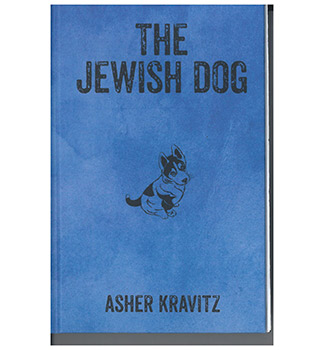What do you think of when you hear the phrase “Jews and dogs”? Some say that Jews have an aversion to dogs. If this is true, perhaps it goes back to the Bible where dogs are often portrayed negatively. In Deuteronomy 23:19, to give one example, the “price of a dog” is seen as equivalent to “the gift of a whore.” Both are defined as “abominations.” Other traditional Jewish texts speak positively about dogs and their loyalty to humans, elaborating on the verse that describes the dogs’ meritorious behaviour on the night of the exodus from Egypt: “But among the Israelites, not a dog shall snarl” (Exodus 11:7; and see Rashi’s commentary to Exodus 22:30).
But perhaps when you heard the phrase, you thought of the connection that anti-Semites have historically made between Jews and dogs. Whether or not you could really see signs in Ontario 80 years ago saying, “No Jews or dogs allowed” (as has been debated here in The CJN recently), the insult has a long and dishonourable history (and shows that if Jews had an aversion to dogs, they were not the only ones).
To cite just two examples, Paul in Philippians 3:2 says: “Look out for the dogs, look out for the evildoers, look out for those who mutilate the flesh (=circumcise).” Shylock in Merchant of Venice claims that Antonio has called him a “misbeliever, cut-throat, dog.” The insult is not limited to Jews: in a controversial passage in the New Testament, Jesus himself is even quoted referring to non-Jews as dogs (Matthew 15:26).
Perhaps Israeli contemporary writer Asher Kravitz had these associations in mind while writing his Hebrew novel, Ha-kelev ha-yehudi: der yiddische hund, which has just appeared in English as The Jewish Dog. His delightful and entertaining book is about a dog born in the home of the Gottliebs, an affluent modern Orthodox Jewish family in Germany of the mid-1930s.
The Jewish Dog is a Bildungsroman, a coming-of-age, autobiographical novel narrated by the mature, 12-year-old dog, thinking back on the adventures, accomplishments, tragedies and meaningful friendships of his life. When you discover after the first few pages that the canine narrator and his Jewish owners live in Germany just after Hitler’s rise to power, you may fear that the book will inevitably change from light-hearted comedy to heartbreaking tragedy, but somehow this does not happen. The narrator does not hide the horrific events going on around him, but his upbeat attitude shines through. Already at the beginning of the novel we (and he) are reassured when the Heavenly Dog appears to him and says, echoing the words of God to Abraham (Genesis 15:2), “Fear not. I am thy protector, and your reward shall be great.”
Filled with allusions of this sort to biblical and rabbinic texts, the book presents serious challenges to a translator. Michal Kessler, however, has done a commendable job, producing an accurate and readable English version. As in the Hebrew original, the English contains a few words and phrases that could stump someone without a Jewish education, for example, an unexplained reference to yachatz (the part of the seder on Passover eve when the matzah is broken and part of it hidden).
The translator has even added some touches for Jewishly knowledgeable English readers. The dog’s name in the Hebrew version, Koresh (Hebrew for “Cyrus”), becomes Caleb in English. “Caleb” plays on the Hebrew word kelev (“dog”), but the pun might have been too confusing in unvocalized Hebrew where kelev and Caleb are spelled identically.
Caleb’s narration shifts humorously between the thoughts of a dog in human words, on one hand, and the folksy wisdom of an elderly Jewish uncle, on the other hand. “I am a dog who never forgets,” Caleb says. “This too I attribute to the Jewish blood flowing through my veins. ‘Thou shalt not forget.’”
Caleb is constantly learning. He reflects on the first Passover seder of his life: “Being but a small and ignorant pup, I didn’t understand a word of Aramaic. I couldn’t appreciate the existential truth that was folded into the lines, ‘Ve’ata calba venashach leshunra… ve’ata chutra vehika lecalba – and then came the dog that bit the cat… and then came the stick that hit the dog.’ Always know who fears you, and whom you must fear.”
Unlike many modern Israeli fictional heroes, the Jewish characters in this book, including Caleb, are proud of their Jewish identity. Like many other proud Jews, he traces his initial positive attitude to his appreciation of Jewish food: “Every week, I was reminded of the great advantage of belonging to a Jewish pack. Though during the week my food dish usually contained simple leftovers, Friday night brought with it juicy chicken, strips of beef fat, and fish brine that surpassed the very nectar of the gods.” As he grows older, Caleb’s Jewish identity and positive Jewish feelings mature.
I am no dog lover, but you need not be one to appreciate Caleb’s story. The Jewish Dog is a delightful, entertaining, Zionist book, with a hopeful message. Despite everything, we survive. And like Caleb, we survive best when we have meaningful Jewish friendships.
